I had to put my dad in this place because his addiction was very advanced. The bad thing was that my dad got worse because he met very bad people there.
About Dover Behavioral Health System
Dover Behavioral Health Systems offers inpatient and outpatient substance use disorder treatment in Dover, Delaware. The facility offers detox services, partial hospitalization (PHP), and intensive outpatient (IOP) programs. You can pay for your services through Medicaid, Medicare, and other insurance plans.
Detox Services Tailored for Military Service Members
Dover Behavioral Health System provides detox to help active duty military members and veterans. You’ll work with a psychiatrist led team led by nurses, activity therapists, and alcohol and drug counselors.
The treatment will include dietary counseling, activity therapy, and spirituality therapy. Your therapy will likely focus on addressing common issues that cause military services members to develop addictions, such as post traumatic stress disorder.
Medications are administered to you to manage your withdrawal symptoms when necessary. Detox can also be provided to your family members.
Treatment Designed to Address Co-Occurring Disorders
When providing recovery services for addiction, the facility puts an emphasis on treating co-occurring disorders. Your psychiatrist can see if your mental illnesses are severe enough to where medications may be needed. By treating issues such as anxiety or depression, you may feel less need to use substances as a means of coping.
In addition to medication, other treatment options utilized include art therapy and skills training. Art therapy provides you an outlet to express your emotions and also reduce your stress levels.
One thing I like about this facility’s location is that it’s not far from Bombay Hook National Wildlife Refuge. It has various trails that you can hike to enjoy some exercise and relieve some stress in between your treatment sessions. It also has an observation tower that can be great for bird watching.
Latest Reviews
Rehab Score
Gallery
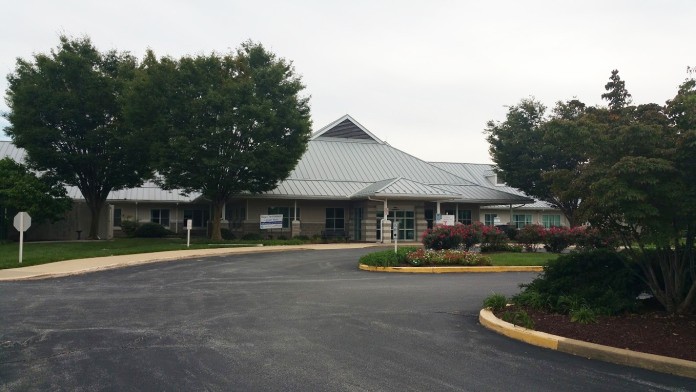
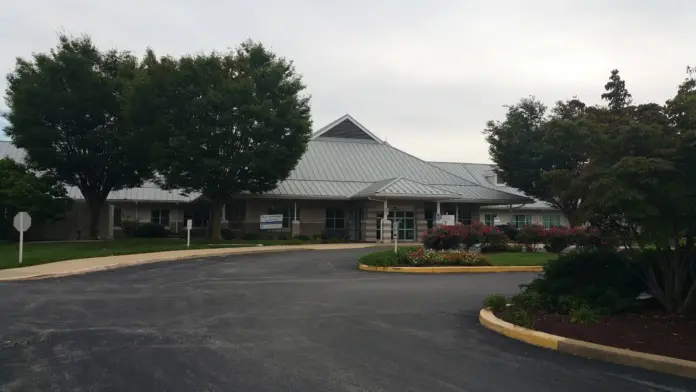
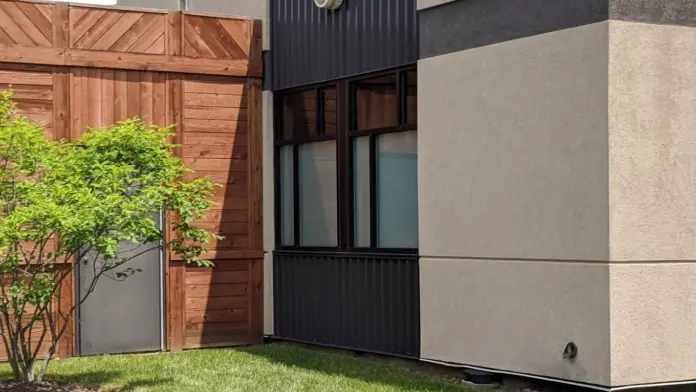
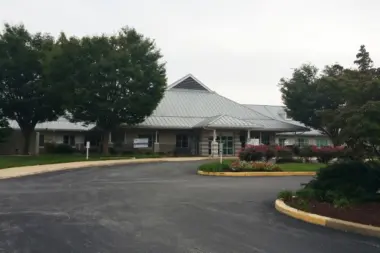
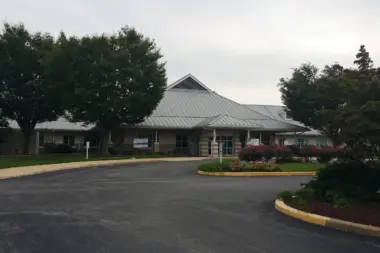
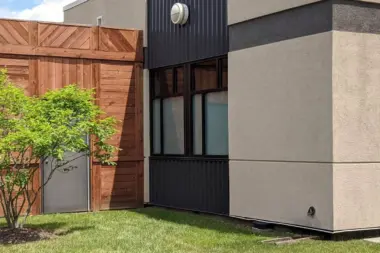
Other Forms of Payment
Private insurance refers to any kind of healthcare coverage that isn't from the state or federal government. This includes individual and family plans offered by an employer or purchased from the Insurance Marketplace. Every plan will have different requirements and out of pocket costs so be sure to get the full details before you start treatment.
Self-pay involves paying for treatment out of your own pocket. You can use savings or credit, get a personal loan, or receive help from family and friends to fund your treatment. If you don't have insurance or your insurance plan doesn't cover a specific program, self-pay can help ensure you still get the care you need.
Financial aid can take many forms. Centers may have grants or scholarships available to clients who meet eligibility requirements. Programs that receive SAMHSA grants may have financial aid available for those who need treatment as well. Grants and scholarships can help you pai for treatment without having to repay.
Medicare is a federal program that provides health insurance for those 65 and older. It also serves people under 65 with chronic and disabling health challenges. To use Medicare for addiction treatment you need to find a program that accepts Medicare and is in network with your plan. Out of pocket costs and preauthorization requirements vary, so always check with your provider.
Military members, veterans, and eligible dependents have access to specific insurance programs that help them get the care they need. TRICARE and VA insurance can help you access low cost or no cost addiction and mental health treatment. Programs that accept military insurance often have targeted treatment focused on the unique challenges military members, veterans, and their families face.
Medicaid is a state based program that helps lower-income individuals and families pay for healthcare. Medicaid covers addiction treatment so those enrolled can use their coverage to pay for rehab. When a program accepts Medicaid the client often pays very little or nothing out of their own pocket.
Addiction Treatments
Levels of Care
Outpatient Programs (OP) are for those seeking mental rehab or drug rehab, but who also stay at home every night. The main difference between outpatient treatment (OP) and intensive outpatient treatment (IOP) lies in the amount of hours the patient spends at the facility. Most of the time an outpatient program is designed for someone who has completed an inpatient stay and is looking to continue their growth in recovery. Outpatient is not meant to be the starting point, it is commonly referred to as aftercare.
Inpatient rehabs offer the structure and support that clients exiting detox, those in early recovery, and those in crisis often need. They provide housing and meals, enable clients to escape home and workplace stressors and focus solely on recovery. Clients engage in intensive psychotherapy, which may include group and family counseling. Inpatient treatment is also designed to prepare clients for outpatient care, which typically involves recovery-focused life skills training. Holistic therapies are widely available.
Intensive Outpatient Programs (IOP) are for those who want or need a very structured treatment program but who also wish to live at home and continue with certain responsibilities (such as work or school). IOP substance abuse treatment programs vary in duration and intensity, and certain outpatient rehab centers will offer individualized treatment programs.
Clients receiving services in a rehab aftercare program have typically completed detox or an inpatient treatment program. Aftercare programs provide customized, wraparound care to support recovery as a life-long process. Case managers, the recovery care team, and the client work together to identify and access services the client needs in order to support sustained sobriety.
12-step programs are addiction recovery models based on Alcoholics Anonymous (AA). A number of substance abuse programs (including some drug and alcohol rehab centers) use the 12 steps as a basis for treatment. Beginning steps involve admitting powerlessness over the addiction and creating a spiritual basis for recovery. Middle steps including making direct amends to those who've been hurt by the addiction, and the final step is to assist others in addiction recovery in the same way. 12-Step offshoots including Narcotics Anonymous (NA), Cocaine Anonymous (CA), Dual Recovery Anonymous (DRA), Sex and Love Addicts Anonymous (SLAA) and Gamblers Anonymous (GA).
Offering an intensive form of rehab tailored to those who don't need 24-hour care, a partial hospitalization program (PHP) is ideal for serious addiction disorders that may not fully respond to regular outpatient therapy. PHP can serve as an alternative to inpatient hospitalization or as a step-down option and is often fully covered by insurance. With daily sessions lasting six to eight hours, up to five days a week, PHP treatment can provide medication management, relapse prevention strategies, and behavioral therapy interventions.
Round-the-clock medical care is provided during medically supervised detox. This 24-hour clinical care in Delaware serves three main purposes. First, medical staff provide treatment to curb the effects of withdrawal, which range from uncomfortable to life-threatening. Second, the detox process minimizes substance dependence by clearing the body of addictive substances. Third, this supervised process prepares the individual for further rehab treatment.
Drug and alcohol addiction often takes a heavy toll on one's body. Over time, a physical dependence can develop, meaning the body physiologically needs the substance to function. Detox is the process of removing drugs and/or alcohol from the body, a process that can be lethal if mismanaged. Medical detox is done by licensed medical professionals who monitor vital signs and keep you safe, healthy, and as comfortable as possible as you go through detox and withdrawal.
Treatments
The goal of treatment for alcoholism is abstinence. Those with poor social support, poor motivation, or psychiatric disorders tend to relapse within a few years of treatment. For these people, success is measured by longer periods of abstinence, reduced use of alcohol, better health, and improved social functioning. Recovery and Maintenance are usually based on 12 step programs and AA meetings.
Recovery is possible for those who complete drug rehab in Delaware. These programs specialize in providing an environment that encourages sobriety and a professional staff that provides the tools to overcome addiction. Participants receive a customized treatment plan tailored to their needs.
Many of those suffering from addiction also suffer from mental or emotional illnesses like schizophrenia, bipolar disorder, depression, or anxiety disorders. Rehab and other substance abuse facilities treating those with a dual diagnosis or co-occurring disorder administer psychiatric treatment to address the person's mental health issue in addition to drug and alcohol rehabilitation.
A combined mental health and substance abuse rehab has the staff and resources available to handle individuals with both mental health and substance abuse issues. It can be challenging to determine where a specific symptom stems from (a mental health issue or an issue related to substance abuse), so mental health and substance abuse professionals are helpful in detangling symptoms and keeping treatment on track.
Opioid rehabs specialize in supporting those recovering from opioid addiction. They treat those suffering from addiction to illegal opioids like heroin, as well as prescription drugs like oxycodone. These centers typically combine both physical as well as mental and emotional support to help stop addiction. Physical support often includes medical detox and subsequent medical support (including medication), and mental support includes in-depth therapy to address the underlying causes of addiction.
Programs
Adult rehab programs include therapies tailored to each client's specific needs, goals, and recovery progress. They are tailored to the specific challenges adult clients may face, including family and work pressures and commitments. From inpatient and residential treatment to various levels of outpatient services, there are many options available. Some facilities also help adults work through co-occurring conditions, like anxiety, that can accompany addiction.
Young adulthood can be an exciting, yet difficult, time of transition. Individuals in their late teens to mid-20s face unique stressors related to school, jobs, families, and social circles, which can lead to a rise in substance use. Rehab centers with dedicated young adult programs will include activities and amenities that cater to this age group, with an emphasis on specialized counseling, peer socialization, and ongoing aftercare.
Recovery is most successful when clients feel accepted and validated by their peers and treatment providers. Facilities that offer LGBTQ-inclusive programming are committed to creating a safe space where everyone can grow and recover without fear of judgment or discrimination. They will have dedicated policies in place to create a safe and supportive environment that fosters free expression.
Serving in the military is both mentally and physically challenging, and can result in trauma that persists even after combat ends. Military programs are tailored to the specific and often complex needs of active duty personnel, veterans, and military families. Clients often access these programs through the U.S. Department of Veterans Affairs (VA).
Clinical Services
When used in treatment sessions, cognitive behavioral therapy in Delaware has been shown to be an effective method to address a variety of mental health disorders, including substance use disorders. An advantage of this method is its ability to also address any co occurring disorders such as anxiety, depression, and PTSD.
Group therapy is any therapeutic work that happens in a group (not one-on-one). There are a number of different group therapy modalities, including support groups, experiential therapy, psycho-education, and more. Group therapy involves treatment as well as processing interaction between group members.
In individual therapy, a patient meets one-on-one with a trained psychologist or counselor. Therapy is a pivotal part of effective substance abuse treatment, as it often covers root causes of addiction, including challenges faced by the patient in their social, family, and work/school life.
Motivational interviewing is designed to strengthen your internal motivation to change. It's a method of communication that focuses on change, allowing you to reflect on your current circumstances and draw your own conclusions about the next steps you need to take.
Trauma therapy addresses traumatic incidents from a client's past that are likely affecting their present-day experience. Trauma is often one of the primary triggers and potential causes of addiction, and can stem from child sexual abuse, domestic violence, having a parent with a mental illness, losing one or both parents at a young age, teenage or adult sexual assault, or any number of other factors. The purpose of trauma therapy is to allow a patient to process trauma and move through and past it, with the help of trained and compassionate mental health professionals.
Couples therapy typically involves five strategies. The therapist will get to know you, help you both identify your feelings, explore the past, find solutions to relationship issues, and teach you skills to deal with issues now and in the future.
Research clearly demonstrates that recovery is far more successful and sustainable when loved ones like family members participate in rehab and substance abuse treatment. Genetic factors may be at play when it comes to drug and alcohol addiction, as well as mental health issues. Family dynamics often play a critical role in addiction triggers, and if properly educated, family members can be a strong source of support when it comes to rehabilitation.
Life skills trainings involve all the skills a person must have in order to function successfully in the world. These include time management, career guidance, money management, and effective communication. Truly successful addiction recovery is based on the ability to not only live substance-free, but to thrive. Life skills teaches the practical necessities of functioning in society, which sets clients up for success in life, and therefore sobriety.
The right diet provides healthy dopamine levels that support recovery and help prevent relapse. During nutrition therapy, you'll learn what foods to eat to avoid cravings and restore chemical balance to your body.
Engaging in recreational therapy within an addiction treatment program helps you find joy and purpose in everyday activities. Recreational therapy may include art projects, fitness programs, or outdoor excursions where the activities promote well being, reduce stress, and create a sense of community. Each of these activities is crucial to long term sobriety.
Experiential therapy is a form of therapy in which clients are encouraged to surface and work through subconscious issues by engaging in real-time experiences. Experiential therapy departs from traditional talk therapy by involving the body, and having clients engage in activities, movements, and physical and emotional expression. This can involve role-play or using props (which can include other people). Experiential therapy can help people process trauma, memories, and emotion quickly, deeply, and in a lasting fashion, leading to substantial and impactful healing.
Nicotine replacement therapy products provide small amounts of nicotine to ease withdrawal and cut down on cravings. This allows you to wean yourself off nicotine without further exposure to the harmful toxins found in cigarettes.
Amenities
-
Residential Setting
Accreditations

The Joint Commission, formerly known as JCAHO, is a nonprofit organization that accredits rehab organizations and programs. Founded in 1951, the Joint Commision's mission is to improve the quality of patient care and demonstrating the quality of patient care.
Joint Commission Accreditation: Yes
Contact Information
725 Horsepond Road
Dover, DE 19901